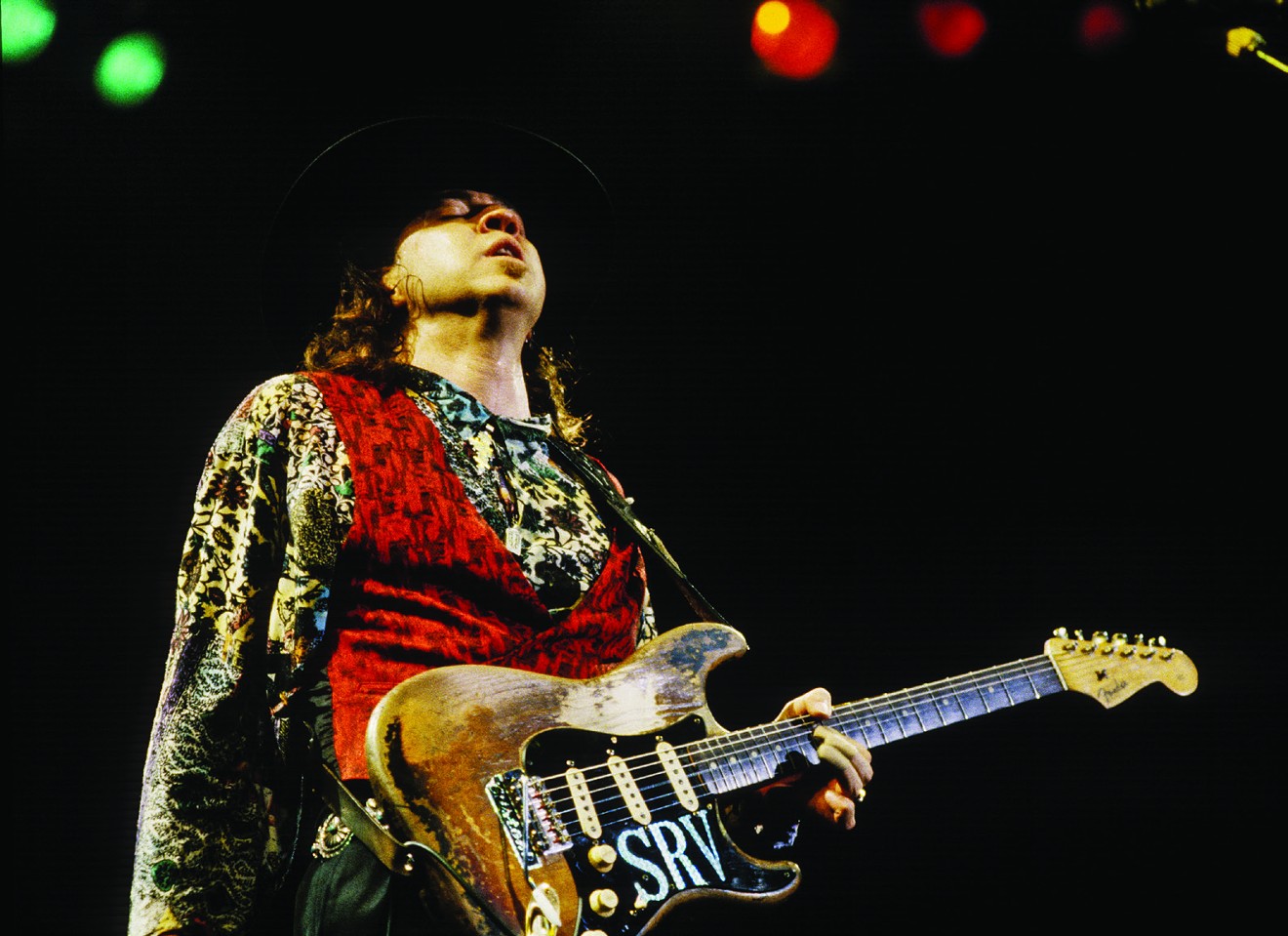For decades now, SRV has been the widely accepted shorthand for modern blues greatness. Dallas native Stevie Ray Vaughan’s legacy as an unparalleled maestro has continued to grow in the decades since his tragic death in a helicopter crash on Aug. 27, 1990, near East Troy, Wisconsin. But for best-selling author, journalist and musician Alan Paul and noted journalist and guitar player Andy Aledort, the power of SRV’s legend and the strength of the available literary resources on his life and music have never matched. But that’s changing now.
Texas Flood, the Inside Story of Stevie Ray Vaughan is a dynamically vivid new book that’s likely the premiere option available for anyone seeking a detail-packed, insider-style account into the life and tunes of Stevie Ray. Consisting of three decades and hundreds of hours worth of interviews, Paul and Aledort’s book is an oral history as told by SRV’s older brother Jimmie Vaughan, a blues legend in his own right, as well as Stevie’s bandmates Chris Layton, Tommy Shannon and Reese Winans, to name a small few.
The authors’ oral history approach allowed them direct access to key SRV players. But even more importantly, Paul says, “The guys were so colorful and had a great vernacular way of speaking that it was good to let them speak in the book as much as possible.” The authors will be at Interabang Books in Dallas on Friday to celebrate the release.
Over 100 people were interviewed by the authors, including all-time musical greats Ray Wylie Hubbard, Ray Benson, Eric Clapton, Billy Gibbons, Joe Perry and even tennis champion John McEnroe. But those are all living legends. Dearly-departed personalities with direct ties to Vaughan such as Dr. John, Gregg Allman, B.B. King and David Bowie are integral to what this book accomplishes. Such unavoidable mortality was paramount for Paul and Aledort in seeing this book hit shelves at this point in time.
“There really hasn’t been a great book about Stevie,” Paul says over the phone. “I just felt there was a big hole, and we wanted to get it out while some of the people involved were still alive. I’m glad we interviewed many people in the book before they died. We interviewed (former Vaughan bandmate) Doyle Bramhall Sr. in 2000. It was time — it was past time.”
Aledort, who interviewed Vaughan a number of times in the mid- and late-‘80s — and got to know him well — adds, “In my appeal to get Jimmie to help us with the book, I told him, ‘It’s been almost 30 years since Stevie passed, and we just can’t wait forever.’”
A blend of the merciless nature of the changing calendar with the revolutionary roar of Vaughan’s music makes its presence felt throughout the book. By the time the new book is only a few years old, many of its voices might be silenced by death, but perhaps just as timely is that in the last 29 years, untold numbers of guitar slingers have grown into SRV disciples.“Like anything truly great, the power of Stevie’s music has strengthened over the years. His influence and stature have only grown stronger, and now we have two generations of musicians that have been influenced by him." — Andy Aledort
tweet this
“Like anything truly great, the power of Stevie’s music has strengthened over the years,” Aledort says. “His influence and stature have only grown stronger, and now we have two generations of musicians that have been influenced by him. Guys who have had successful careers for many years, like John Mayer, worship Stevie, while guys like Markus King are 22 years old and don’t even question for a second how powerful Stevie was as a guitar player.”
The 1960s and ‘70s were a time when few top-level blues guitarists were white. And though SRV would frequently be greeted with some sort of “he’s good for a white guy” type of comments, the giants of the format were taken by his prowess, not his pigment.
“Stevie found a way to cross over to new audiences while staying rooted in something so traditional,” says Aledort. “Masters like B.B. King, Albert King and Buddy Guy loved Stevie for that.” Paul adds to that sentiment by saying, “Stevie’s success did shine a light back on the guys who influenced him. He was a natural gateway for people to hear the greats, and he went out of his way to talk about his favorite blues musicians in interviews. They accepted him because he could play.”
The Vaughan brothers spent the bulk of their working-class childhood in Oak Cliff. The family patriarch, Jimmie Lee Vaughan, was a hard-drinking, sometimes abusive man, but, if nothing else, he put the boys in an environment where music was at the ready. Throughout his life, Stevie would tell stories of when his dad would entertain members of iconic western swing band the Texas Playboys in his home, spin records and listen to the Big D Jamboree radio show anytime he could. Who knows if we would ever know the initials SRV had he not spent his days in Dallas learning licks at every turn?
“The feeling you get when you hear these stories from Stevie and Jimmie,” Paul says. “Is that for them, music was just in the air, and they were breathing it as much as they could.”













